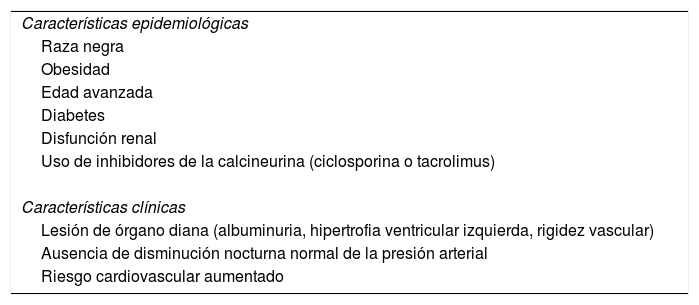Existen numerosas evidencias tanto epidemiológicas como experimentales que demuestran la existencia de una relación entre el consumo de sal y las cifras de presión arterial. Los individuos tienen distintos grados de susceptibilidad al efecto presor de la sal, fenómeno que se conoce como sensibilidad a la sal. El fenómeno del incremento o no modificación de las cifras de presión arterial al pasar de una dieta pobre en sal a otra rica ha llevado a acuñar los conceptos de sensibilidad o resistencia a la sal. Clásicamente se ha aceptado la teoría de Guyton del fenómeno de natriuresis por presión para explicar este efecto, así como, el papel fundamental que desempeñan las distintas proteínas transportadoras de sodio de los túbulos renales. En los últimos años, hay trabajos que cuestionan esta teoría y apuntan al posible papel del sistema inmune y de un tercer almacén de sodio en el organismo como factores etiopatogénicos.
Abundant evidence from epidemiological and experimental studies has established a link between salt and blood pressure. However, there is heterogeneity in the blood pressure responses of humans to changes in sodium intake. Those individuals in whom a severe, abrupt change in salt intake causes the least change in arterial pressure and are termed salt-resistant, whereas in those in whom this leads to large changes in blood pressure, are called salt sensitive. Classically, Guyton's theory of the pressure-natriuresis phenomenon has been accepted to explain the pressor effect of salt, as well as the fundamental role played by the different protein sodium transporters of the renal tubules. In recent years, new theories have emerged pointing to the possible role of the immune system and the existence of a third sodium store in the body as aetiopathogenic factors.








